Florida Passes Bills to Dissolve Disney World’s Reedy Creek Improvement District
Florida’s state legislature passed a bill to dissolve the Reedy Creek Improvement District, which gives Walt Disney World its own government within Osceola and Orange County. This post takes a look at what’s happened, what’s next, and what this means for the parks & resorts.
The Walt Disney Company has been embroiled in a bitter standoff with Florida state leadership since the company took a public stance on Florida HB 1557. The actions and statements by each side in that high profile controversy are well documented; the Reedy Creek Creek bills are essentially the legislature’s retaliation for that after Disney “chose to kick the hornet’s nest,” according to State Rep. Randy Fine, who filed the bill in the Florida House.
The latest chapter in the ongoing saga started this Tuesday, when Governor Ron DeSantis announced that Florida’s special legislative session would take up the dissolution of six special districts enacted before 1968, including Walt Disney World’s own government. The Florida Senate moved forward with SB 4C, and a companion bill, HB 3C, was filed in the Florida House.
The latter bill passed the Florida Senate on Wednesday by a vote of 23-16. The former passed the state’s House of Representatives with a 70-38 vote. The bill now heads to DeSantis to be signed into law.
With that, Reedy Creek Improvement District (RCID) and 5 other special districts will be dissolved on June 1, 2023, but given a chance to be reestablished. Just as certain that DeSantis will sign the bill is that it’ll be challenged in court.
For those who are unfamiliar with it, Reedy Creek Improvement District is a special district that allows the company to act as its own government with regard to Walt Disney World. The Florida legislature created the Reedy Creek Improvement District in 1967 during the planning stages of the company’s Florida Project.
This governmental district, controls approximately 25,000 acres and services 19 landowners, including the Walt Disney Company and its wholly-owned affiliates. The powers executed by the Reedy Creek Improvement District are granted to two cities, Bay Lake and Lake Buena Vista. The two towns have low combined populations, all of whom are loyal Disney employees.
RCID’s day-to-day operations are conducted separately from the Walt Disney Company, but as Reedy Creek’s largest landowner, Disney effectively controls the RCID Board of Supervisors. This means Disney is not subject to asking (outside) local planning commissions for approval to build new structures or pay governmental impact fees for construction.
RCID allows Walt Disney World to build parks, attractions, hotels, and other projects within Reedy Creek with little-to-no (outside) governmental oversight. That means Walt Disney World can avoid the logistical hurdles of local government that often come with requesting residents to pay taxes to fund infrastructure. That’s a double-edged sword, as it also means Florida taxpayers are not footing the bill for infrastructure at Walt Disney World.
Among other things, Reedy Creek Improvement District oversees land use and environmental protections within its boundaries, and provides essential public services (e.g. fire protection, emergency medical services, potable water production, treatment, storage, pumping & distribution, reclaimed water distribution, chilled and hot water systems, wastewater services, drainage and flood control, electric power generation & distribution, and solid waste and recyclables collection & disposal).
The District also regulates construction pursuant to the EPCOT Building Code, and is responsible for all public roadways and bridges. RCID is self-sufficient, funding its operations, services, and capital improvements by assessing taxes and fees to the District’s landowners and lessees.
This last point is significant when it comes to dissolving RCID. Through its ability to collect taxes and issue bonds, Reedy Creek Improvement District has an annual budget of more than $169 million. Over 90% of that comes from the collection of property taxes on Walt Disney World real estate. RCID also has $1 billion to $2 billion in bond debt.
In addition to those payments to RCID, Walt Disney World also collects and remits sales taxes to both Orange and Osceola Counties, Tourist Development Taxes from on-site hotel guests, and pays property taxes on to the respective counties. (There was/is a long-running legal battle between Disney and the Orange County Property Appraiser as the company has successfully sought to reduce its tax burden on multiple occasions.)
According to Orange County Tax Collector Scott Randolph, dissolving the Reedy Creek Improvement District would be a financial burden on local residents with no gain. If RCID is dissolved, “it’s zero revenue, but [Orange County taxpayers] take on the obligations,” Randolph said in an interview with WKMG-TV (Orlando’s CBS affiliate).
“If Reedy Creek is dissolved, my guess would be Orange County would have to raise property taxes 15 to 20%,” Randolph stated. Orange and Osceola residents would take on the burdens of fire fighting, wastewater, power, road maintenance, and more at Walt Disney World, all that without additional revenue. Randolph said that it would “punish” local taxpayers more than Disney.
Dissolving the district would mean Reedy Creek employees, infrastructure, and more would be absorbed by Osceola and Orange Counties. The counties would essentially step into the shoes of RCID as its successor, collecting at least some of the tax revenue Walt Disney World currently pays the Reedy Creek district, while also being saddled with RCID’s current liabilities.
However, it’s unclear whether the counties could collect the entirety of RCID’s annual budget. To the extent that Reedy Creek is inflating charges or duplicating taxes assessed by the counties, they could not. Without a thorough audit of Reedy Creek’s financials, it’s impossible to say how much of what Disney is paying to the district could be collected by the counties.
Additionally, Reedy Creek typically operates at a loss of around $5 million to $10 million per year, according to the district’s financial reports. That doesn’t matter to Disney, as that’s peanuts and that lose can be subsidized by theme park revenue. For local governments and taxpayers, those shortfalls are more significant.
The bigger issue is the $1 billion to $2 billion in outstanding debt that RCID has taken on, which sounds almost like defensive poison pill provision to prevent a hostile takeover. (Don’t let the bungling of recent controversies fool you–Disney is incredibly adept at playing politics and protecting itself.) If the special district actually is dissolved, that liability doesn’t just disappear, it becomes the responsibility of taxpayers.
Before we delve into commentary, you’ve probably noticed a lack of coverage here about the standoff between Disney and Florida, which has been breathlessly covered elsewhere. That’s simply because it is not relevant to vacation planning. If we devoted attention to all of the company’s lobbying or controversial business practices, that would likely be a stressful full time job, and one upsetting fans of all political persuasions. When it comes to that, choosing which stories to cover is just as political as the substance of said content.
I hadn’t planned on writing about these Reedy Creek developments as of earlier this week, either. With that said, we have already received countless questions about how the dissolution of Reedy Creek will impact Walt Disney World, prices, and myriad other things. Accordingly, I wanted to break this down in a straightforward manner, free of hyperbole and sensationalism. Hopefully this one article will suffice, and we won’t have to address the topic again.
In short, I don’t think this will have any material impact on the guest experience at Walt Disney World. That’s because I don’t think Reedy Creek Improvement District will actually be dissolved when all is said and done.
I’ll offer the caveat that although I have generalized knowledge of Walt Disney World and degrees in law and political science, I have zero expertise in administrative or municipal law. I’d further add that you should be skeptical of anyone who claims to be certain of how this will unfold. This involves novel issues, unsettled law, and political calculuses that defy convention. There’s not exactly a ton of precedent concerning the dissolution of special districts controlled by corporations.
Moreover, the legislation as passed raises more questions than it answers. Those will almost certainly be settled by the courts, which will need to determine, among other things, whether this amounts to viewpoint discrimination that runs afoul of Citizens United and its progeny.
Even before that, there’s the threshold issue of whether the Florida legislature even has the authority to dissolve RCID without the approval by a majority vote of the residents or landowners of the district. (If required, there’s a zero percent chance of that approval being given.) The bill even tacitly acknowledges this, stating that it is “notwithstanding s. 189.072(2).”
Assuming the state finds a way to sidestep all of that, there’s also the question of how unwinding the Reedy Creek Improvement District would occur. Orange and Osceola Counties clearly don’t want to take on the municipal obligations, and even if they did, that would require a period of transition–not a clean break.
Then there’s the issue of RCID’s debts. Florida isn’t just going to give Disney a $1 to $2 billion tax break as “punishment” for its transgressions. Assuming RCID is dissolved, the most likely outcome is thus that it’s immediately replaced by another special district consistent with those established in or after 1968.
With all of that said, let’s assume, arguendo, that RCID is dissolved and nothing replaces it. What happens then? In theory, Walt Disney World has to jump through more hoops on projects, resulting in delays and more costly construction. The case could also be made that urgent work or needs aren’t serviced in as expeditious of a manner, as Disney is at the mercy of Orange and Osceola Counties.
I wouldn’t be so quick to assume that. For one, you’ve seen the TRON Lightcycle Run construction site, right?! Joking aside, RCID actually has pretty onerous standards, and does not simply rubber stamp all of Imagineering’s plans. Look no further than the incredibly wide walkways at Wilderness Lodge or the giant support column under the Cosmic Rewind starship. You can thank Reedy Creek for all of that, and much more.
The company would undoubtedly face added costs, delays, red tape, and unpredictability, but it’s not like Disney is exactly the paragon of corporate efficiency. They’re about as bureaucratic as any government. Conversely, Orange County seems relatively adept at building and maintaining infrastructure (by government standards) even amidst the current population explosion.
All of this analysis is reductionist, superficial, and filled with broad assumptions. The point is that even if RCID is dissolved, it would hardly mean the sky is falling for Walt Disney World. Guests probably wouldn’t notice anything other than different colored signs along the roads.
Ultimately, even though the bills dissolving Reedy Creek Improvement District have passed and will be signed into law, this is really just the beginning of a long saga that will last the next year-plus. While it’s impossible to foresee everything that will happen, my main predictions are that many attorneys will be enriched and much digital ink will be spilled about the ramifications of RCID’s demise.
Personally, I do not think that “demise” will happen, nor should it in this manner. There are legitimate critiques of Reedy Creek and whether a corporation should perform the roles of government, enjoy special treatment, and have such an outsized influence in state and local politics. Legal scholars, politicians, and others have debated all of this for years. This is not the first time RCID has been called into question–Disney has made changes to stay in Florida’s good graces before.
However, it’s hard to argue persuasively that what’s happening now qualifies as a good faith check on Disney’s self-governance. If motivated by the best interests of voters, dissolving Reedy Creek would be a methodical process, with its financial implications studied and recommendations made for the orderly unwinding of the special district to minimize the negative ramifications on the company and taxpayers. None of that has occurred.
One could argue that this is because no legislator on either side of the aisle actually believes Reedy Creek Improvement District is going to be dissolved. Perhaps they’re cynical, thinking that it’s more about theater, a way to score a quick “win” in today’s era of ‘politics as team sports’ and the ongoing culture wars. Maybe it’s a means of grabbing headlines, dominating the news cycle, and fundraising for midterms before moving on to the next outrage du jour that fuels each side’s base long before next summer.
There’s a reason Orange County (the main “beneficiary” of this change) is against RCID being dissolved in this manner; separately, there’s also a reason Disney has gone quiet on issues concerning Florida politics, including this very Reedy Creek legislation. This isn’t to say that a special district with the name Reedy Creek Improvement District will exist on June 1, 2023. It is to say that it would be incredibly surprising if there are any changes to Walt Disney World’s governance between now and then that materially impact guests.
Planning a Walt Disney World trip? Learn about hotels on our Walt Disney World Hotels Reviews page. For where to eat, read our Walt Disney World Restaurant Reviews. To save money on tickets or determine which type to buy, read our Tips for Saving Money on Walt Disney World Tickets post. Our What to Pack for Disney Trips post takes a unique look at clever items to take. For what to do and when to do it, our Walt Disney World Ride Guides will help. For comprehensive advice, the best place to start is our Walt Disney World Trip Planning Guide for everything you need to know!
YOUR THOUGHTS
Any thoughts on the potential dissolution of Reedy Creek Improvement District? Keep the comments civil, as this is not the place for politically-charged arguing, antagonism, personal attacks, or perpetuating pointless culture wars. While this topic is inherently political, we will be heavy-handed in deleting comments that amount to little more than vapid political cheerleading. Respectfully debating the pros & cons and implications of RCID being dissolved (or whether it’ll actually happen) is totally fine, but don’t step outside the bounds of this narrow topic. If you wish to shout your opinions about Ron DeSantis, Bob Chapek, or other politicians/executives into the internet abyss, that’s why Facebook was invented. 😉
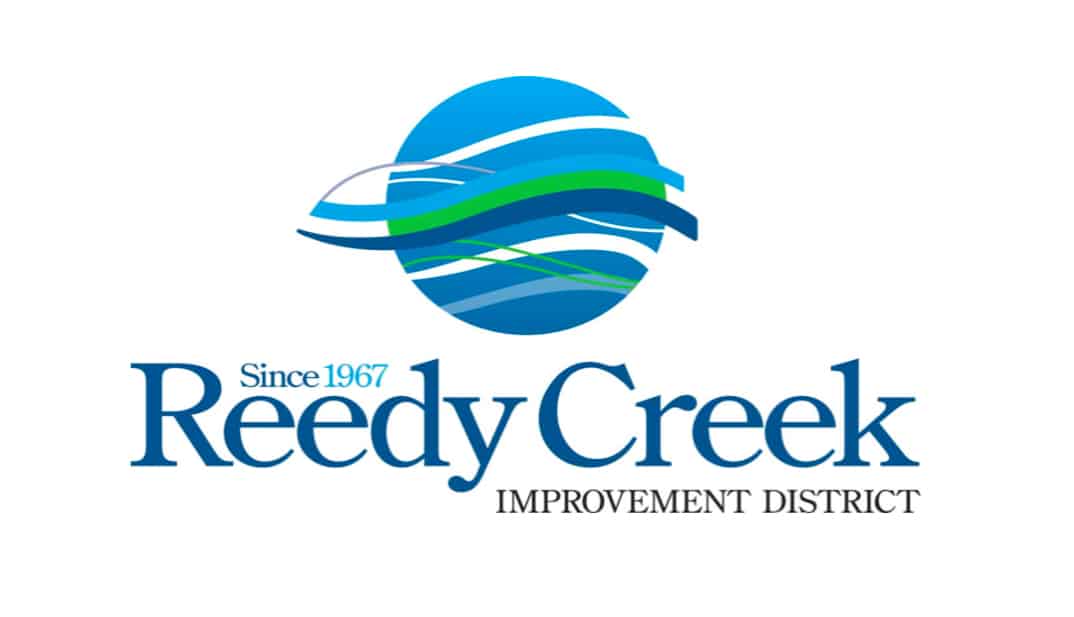



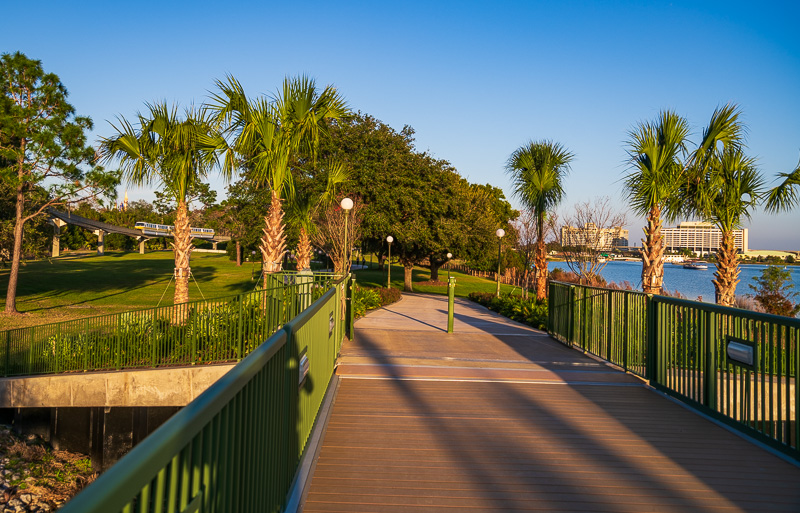





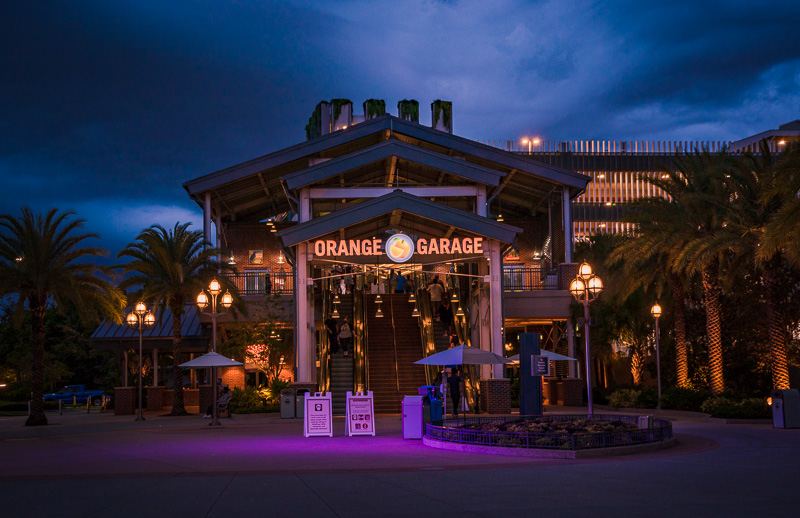

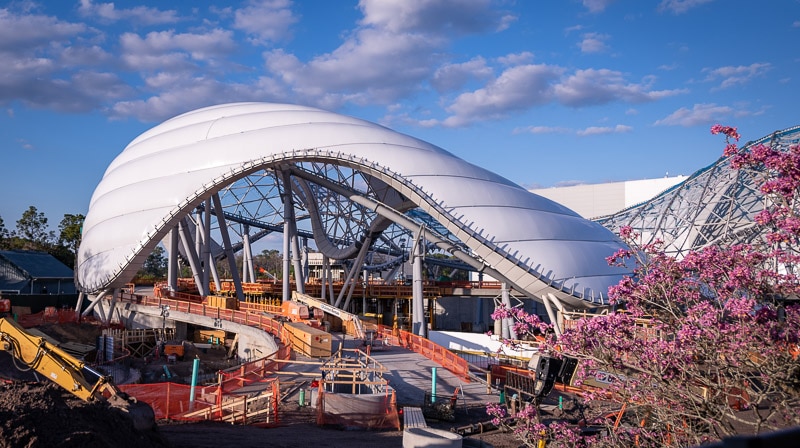
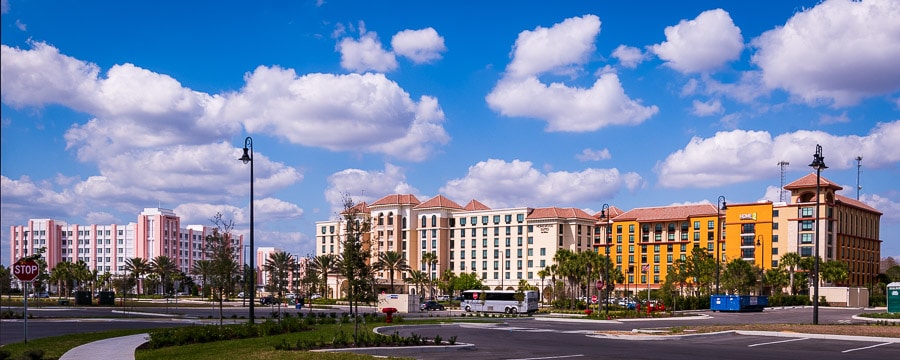


Thanks Tom for the good work as always. Was trying to really understand this situation through articles on major news sites, and, as usual, your take is the one that cuts through the political noise and opinions with a good faith effort to just deliver the facts. Wish you were delivering the news beyond Disney — we’d probably all be better off!
Thanks for this. I understand your reluctance to cover politics, but I was waiting for your article on the Reedy Creak situation; you’re the only one who consistently provides analysis as opposed to breathless commentary.
It made my day to see the word arguendo used in a Disney blog. There have been occasions for me when that would have been the mot juste, but for concerns about the likelihood of confusion. You’re a word-choice trailblazer! From one Disney-nerd lawyer to another, cheers! 😉
I totally agree with the replies from Jeff, Will, Rose and PegP. This was a total overreaction by my states Governor. His reaction was like telling a 4 year old “no” and they have a tantrum. As much as I have come to dislike WDW and their money grubbing ways over the last 5 years, I cannot see where they did anything egregious. If a company or person cannot come out and say that they are for or against a policy without retaliation then something is wrong with the system. The worst part, if anything really does happen, is that this was done with absolutely no thought of how this would affect the 2 counties that will have take over all the aspects of covering the Reedy Creek area. I have lived in Florida for 35+ years and half of those years were in Central Florida and I can tell you that WDW did a heck of a lot better job governing their area, than our government did managing the Central Florida area. I also read an interview that the Orange County mayor said that if they have to takeover their share of Reedy Creek, that it would be “catastrophic” to their budget and that they would have to get that money from the citizens of the county.
It was a HUGE mistake for CEO Chapek (maybe to the point of replacing him) to cave to Disney employees and come out against the legislation. As Tom mentions, Disney is no wallflower when it comes to politics. I’m sure there are an army of lawyers looking into this whole situation. It’s unfortunate because I think Disney runs a much tighter ship on taking care of infrastructure vs. have the local government come over and fix your potholes.
And the unintended consequence is that the local taxpayers will be stuck with the bill.
That said…I don’t think this will materially affect people going to WDW unless they let politics determine if they want to visit.
Well researched. Makes a complex issue easy to understand. I just read a New York Times piece about the subject and this one is much more informative. Great article. Congrats!
Interesting to read the recurring theme of “Disney should stay in its lane and out of politics” in these comments – yet Disney was for years donating to anti-gay politicians including the very people who sponsored this bill.
That doesn’t surprise me though. What does surprise me is the about-turn by Disney/Bob Chapek, after the non-apology (accompanied by the laughable claim about advancing the representation of marginalized communities in their work, an area in which the Mouse House has demonstrably trailed its competitors and, according to their own staff, actively sought to suppress). There must have been a LOT of pushback from employees (and investors?) for Disney’s corporate leadership to subsequently come out so strongly against the very legislation they helped fund. Where were those critics earlier? I guess that nearly a century of marginal representation and not-so-discreetly advancing the conservative agenda was still palatable until Disney was outed as party to the GOP’s targeting of a marginalized community.
Why can’t corporations stick to producing their products and stay out of political and social engineering? Well, because they are run by egotistical elitists who truly believe they know what’s best for common folk. Such is the case. One day they will all be worm food just like the rest of us.
Well at least when it comes to governments retaliating against them can say whatever they want due to this little thing called the 1st Amendment. People can choose to “cancel” Disney for saying what they said, but the State of Florida cannot.
Nice write-up, Tom. RCID is like a planned unit development, where you set up an area to develop in a master planned fashion, parts at a time, as economic conditions warrant, under certain conditions agreed to by the developer and the city/county/state/etc. We did them all the time for developers, who would build a subdivision on part of it, so as to not saturate the market with lots and lower their income potential. RCID is a little more than that, operating as a town charter and able to adopt their own building codes and such, which was a brilliant move. To me, the biggest was as you mentioned, not having to bother with local city or county permit office or inspectors.
This push for dissolution is in a word, dumb. And I agree that it won’t just happen, if at all. Not only would the two counties have to absorb the duties and maintenance, they would have to BUY all of the improvements in relation to the conversion. Roads, fire stations and equipment, utility facilities and distribution networks, etc that would be in the ‘public’ right of way. Disney would not and could not be forced to just hand this over to the counties.
Disney could also require the counties to pay them for an annual lease for the properties under them as well, because you know they are not going to hand over deed and title to a single square foot of the land they own. Want to double my property taxes? Fine, your lease cost is being raised 400%. Now, obviously this is quite oversimplified and would be fought over in court for years, if not decades.
If I were the CEO, and the state DID go through with dissolution and no realistic (fro Disney) replacement agreement, I might, as the largest employer in the state, driver of the state economy and Orange/Osceola CO economies and the sole reason Orlando isn’t still a small farming village, Just ignore it and keep operating as usual. So sue us, might be the response when the harassment started…
The bottom line is that in the near term, county residents would be devastated by such burdens. In the long term, the guest experience would suffer, as the lesser county maintenance would lead to degraded roads and utilities. But no, Disney will not be losing much if any money, and might actually come out ahead.
Bob Chapek needs to go. Disney needs to stay out of politics. It is like the NFL, people want entertainment and not political views. We just want our “happy place” at Disney World.
ahh yes, the “Please use your free speech, as long as I don’t have to hear it.” statement. You know Disney said something because their staff/employees demanded it right?
How could I miss it James? Just my opinion. Have a great day!
All they said was they would pause all political donations. Isn’t that the epitome of staying out of politics? If you have to keep making “donations” to keep special privileges that’s not a donation, that’s extortion.
I can not begin to tell you how much I appreciate your objective reporting on this as you consistently do with all your blogs. Will be interesting to watch this unfold. I love Disney but perhaps they needed to be taught to stay in their lane. Corporations should not be giving such strong opinions on education. It’s not their place. Would love to see Chapek apologize and resign, and for Reedy Creek maintain its current status.
Several years ago we learned “corporations are people”. Whether we are for or against an issue every company has the right to take a stand. During this whole thing Disney also took a position on the war in Ukraine and took steps to pull their products out of Russia. In that case not many complained. We can’t have it both ways. I’m sorry this issue was created to cause division and fire up a political base. I’m sorry the other side took the bait. In the long run Disney will win this battle because we also can’t pick and choose when the first amendment and the constitution matter. In the meantime I’ll continue to enjoy the parks.
As many others commented, the thorough, unbiased, fact-based journalistic approach was refreshing and is exactly what’s missing from media outlets today. I’d also like to see Disney stay in their lane and focus on creating magical experiences and stay out of politics entirely, but that’s not likely to happen. And, if I’m throwing out my “wishes”, I also want Cinderella’s Castle to go back to its original blue color. 🙂
AB try The Epoch Times, I have found them to be unbiased and cover topics in detail. They offer any combination of a printed paper sent to your home, a digital app, and just recently launched Epoch TV. There have been great interviews on there.
I feel this is as “unbiased” as one could be, considering everyone has an opinion.
I enjoyed the information and your attemp to remain neutral.
Tom, thank you for your well balanced approach to this issue! I came here because I knew I could get an alaysis of the issues at hand; political opinions aside!
Good analysis, and I agree. Doubt it will actually be dissolved or things will change meaningfully — seems like a stunt, sure to be overturned in court.
I do find it pretty interesting that the state government supports corporations having unlimited money in politics, but speaking their mind? Absolutely not. Even though free speech was the entire rationale for that view of money in politics. If this ends up being overturned because of Citizen’s United, that would be a delicious irony. On this issue, there’s so much inconsistency it’s unreal. The same people arguing for free speech in situation A, totally against it in situation B.
My personal opinion is that corporations should be feel to express themselves in exactly the way Disney has here… yet they should NOT be allowed to pour money into politics to support those views. Essentially the exact opposite of what the Florida government seems to be implying they believe.
If Disney says something you don’t like politically, you’re welcome to boycott them. Rather than having them keep quiet and pretend they’re somehow magically apolitical, I’d personally rather know what companies think and spend my money accordingly. I don’t like it when I support a company, and then find out later I strongly morally object to their leadership’s actions. It makes me feel like I’ve been conned, and I can’t undo my past decisions.
I should probably add that I feel that way about this blog too. I’d rather know what you think honestly.
As a media nerd, people praising the “unbiased” reporting makes me cringe a bit. There’s no such thing as unbiased reporting. What this is, is /less/ biased reporting, or less obviously biased reporting. Removing bias completely is impossible, and sometimes (not so much in this case, but others) when reporting tries to be unbiased, all that happens is that the view is promoted in more subtle ways that are harder for people to detect. It can actually influence people who don’t realize they’re being influenced, which has its own problems.
I get that this is a nit-picky point and doesn’t apply as much to a Disney blog, but I couldn’t help myself reading the comments.
Excellent article Tom. Has anyone looked back at the affects WDW had on businesses starting with the St.Cloud and Kissimmee corridor over the past 25 to 50 years? Great boom with hotels all along the way with many successful businesses. Then, WDW began their takeover by building accommodations for guests as quick as possible while removing perks for the locals. For many years the local businesses and hotels along the stretch were boarded up b/c WDW the “giant” knocked the little guys to the wayside. Finally it is starting to come back, but my parents who lived close by lost out big time. There is a whole lot more here than meets the current issues that older locals surely remember. Chapek has ruined our experiences and magic while chasing the bottom line!
I read elsewhere that (legally) the Reedy Creek deal would be a difficult one to untangle, meaning I don’t think Disney has anything to worry about. I agree with you Tom that this is political pontification for purposes of garnering votes and is a vengeful move against Disney by Florida’s governor.
I also read there are some who think Osceola and Orange County taxes won’t be raised if Reedy Creek is dissolved. I don’t see how that is possible considering money for infrastructure that Disney once paid for still has to be paid for.
All this will be moot, however, if the courts settle in Disney’s favor (which I think will happen). In the end, Disney will win and DeSantis will win. Disney, by retaining control of Reedy Creek, and DeSantis, by garnering votes among those who are now either pro-DeSantis or anti-Disney.
I am also of the opinion that Chapek’s days are numbered. In the meantime, it may be a good day to buy some Disney stock.
From what I’ve heard, Walt mentioned that he never wanted Reedy Creek to be dissolved and said that if it was to be dissolved then it would have to be by a vote of those in Reedy Creek. He never put it in writing, but supposedly one of the CEOs recently, with all the talk about FL wanting to doing this in past years, had the foresight to officially put it in writing and make it a legal document. Do we think that this legal “law” will be a possible reason this may not go through. I’m wondering if they will use this as a reason why it is overturned.
What you heard is not correct. The RCID charter has perpetuity clause that plainly states of laws are created to challenge the charter, the charter will prevail.
I wish NYT/ WSJ could write about the subject as you have in outlining this issue. Unbelievably well written. Can you just do a daily news recap on all topics in the USA -please please
Thanks for the additional information. However, as of last week I have cancelled my 5000+ vacation originally scheduled for May at the beach club and will end my 30 years of vacationing at Disney 1-2 times per year until the Disney company leaves the political realm. Thanks for listening!